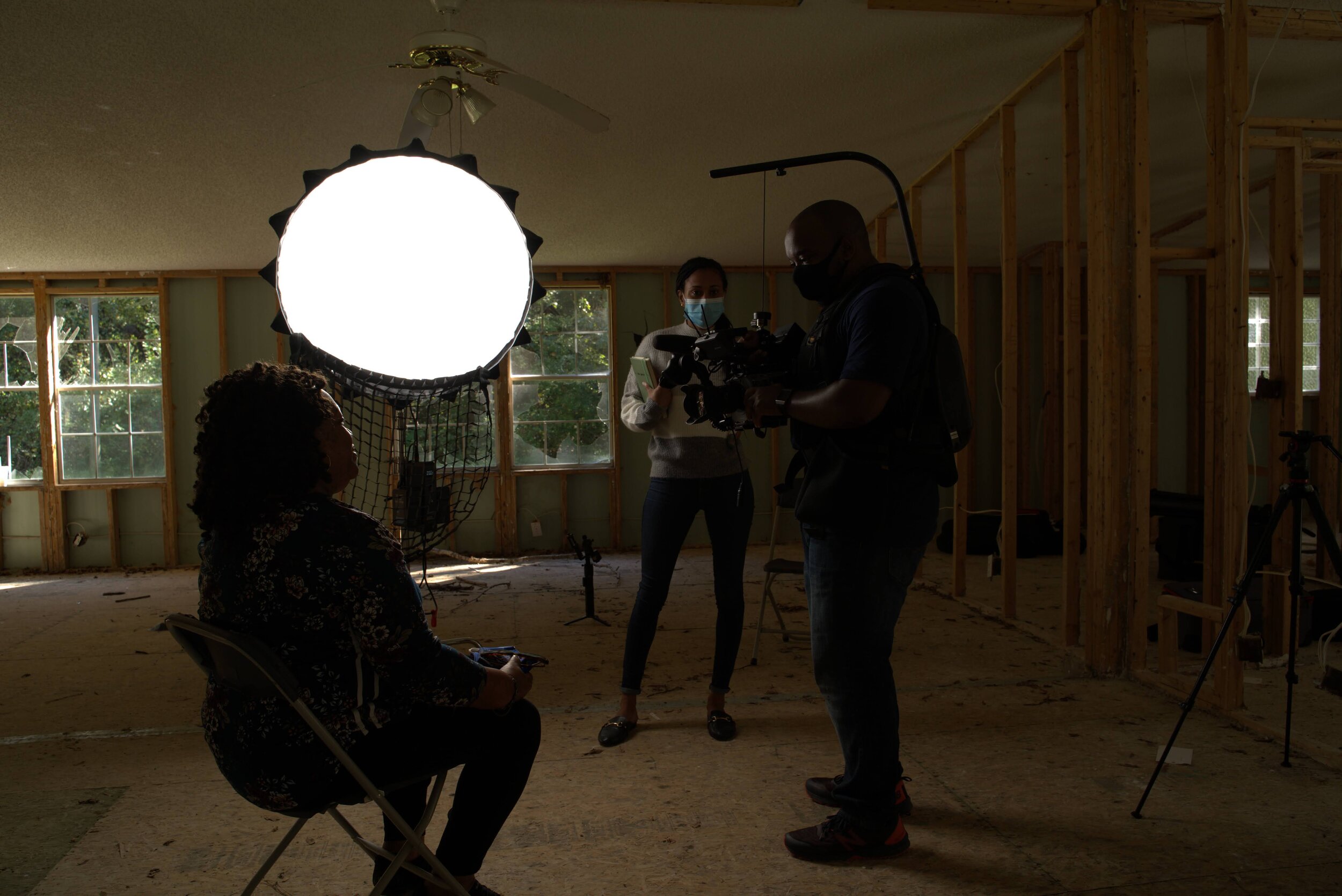Home smells like cigarettes and Sunday family dinners - neckbones and potatoes. Like rain water during hurricane season. Feels like sitting still during a storm so “God can do His work” in peace, as my grandmother put it. I grew up in her house, in Kinston, North Carolina, just an hour from Princeville. As Princeville sits along the Tar River, Kinston rests along the Neuse. My grandmother’s house sits upon the only land my family has ever owned. This is the only home I’ve ever known and the only instance of home ownership in my entire family. 2016 led me back to Eastern North Carolina, where I covered the 15 counties that make up that part of the state as a reporter with WCTI-TV.
Just one month into my career as a TV news reporter, I would witness something devastating - my hometown and the entire Eastern part of the state was underwater after Hurricane Matthew ravaged the coast. At a news station where many of the reporters were from out of state, I was the only reporter forced to grapple with reporting on the flooding while also housing some of my family in my one-bedroom apartment as they had to evacuate their home due to the storm. I grew up just one hour away from Princeville and didn’t learn about the town's historical significance until I was sent there to cover the flood damage. This film is of severe personal significance to me as my roots are in North Carolina, and thus in Princeville.
The threat to these communities continue to grow as the ability to rebuild continually becomes lesser. As with my grandmother’s house, relocating is not an option, due to financial reasons as well as spiritual. We are bound to this land by history. There is a spiritual connection to these spaces that deserves to be protected and passed down. It is not just the future of Princeville that is uncertain, it is the future of our entire country and planet.
-Resita Cox
Director’s Bio
Resita Cox is an Emmy Award winning documentary film director and producer. Her films are a poetic portrayal of her community’s irrepressible spirit and resilience in the face of racism. Resita's documentary film work is people based, meaning it not only features unique, personal stories, but it also prioritizes relationships and is constantly working to reimagine an equitable filmmaking model. Born and raised in the South, her films center Southern, Black communities and use them as a lens to examine topics ranging from environmental justice to racial justice. With a degree in journalism from The University of North Carolina at Chapel Hill, Resita started her career as a storyteller in TV news as a reporter in North Carolina and later in Chicago. Resita was awarded a 2023 Regional Emmy for her work as director on WTTW's series Firsthand: Life After Prison. She is the director/producer of Freedom Hill, an award-winning documentary about the environmental racism that is washing away the first town chartered by Black people in the nation, with which she was named a 2021 Hulu/Kartemquin Accelerator Fellow. She holds an MFA from Northwestern University in Documentary Film and was named a 2022 Esteemed Artist by the City of Chicago. She is one of Elevate’s 2022 Climate Changemakers and is the producer of Bike Vessel, which premiered at the 2023 59th Chicago International Film Festival. Her films have screened across North America at esteemed festivals such as Full Frame, New Orleans, Black Star, Slamdance, Pan African and DC Environmental Film Festivals. Resita is developing her debut feature, Basketball Heaven, a love letter to her hometown: Kinston, NC, with which she won the 2023 South Pitch Documentary with New Orleans Film Society. Her films and impact work have been supported by Chicken and Egg Pictures, Perspective Fund, PBS, Cucalorus, South Arts, Points North Institute, Chicago Filmmakers and other prestigious film organizations. She organizes an annual youth media camp in her home community, eastern North Carolina.




